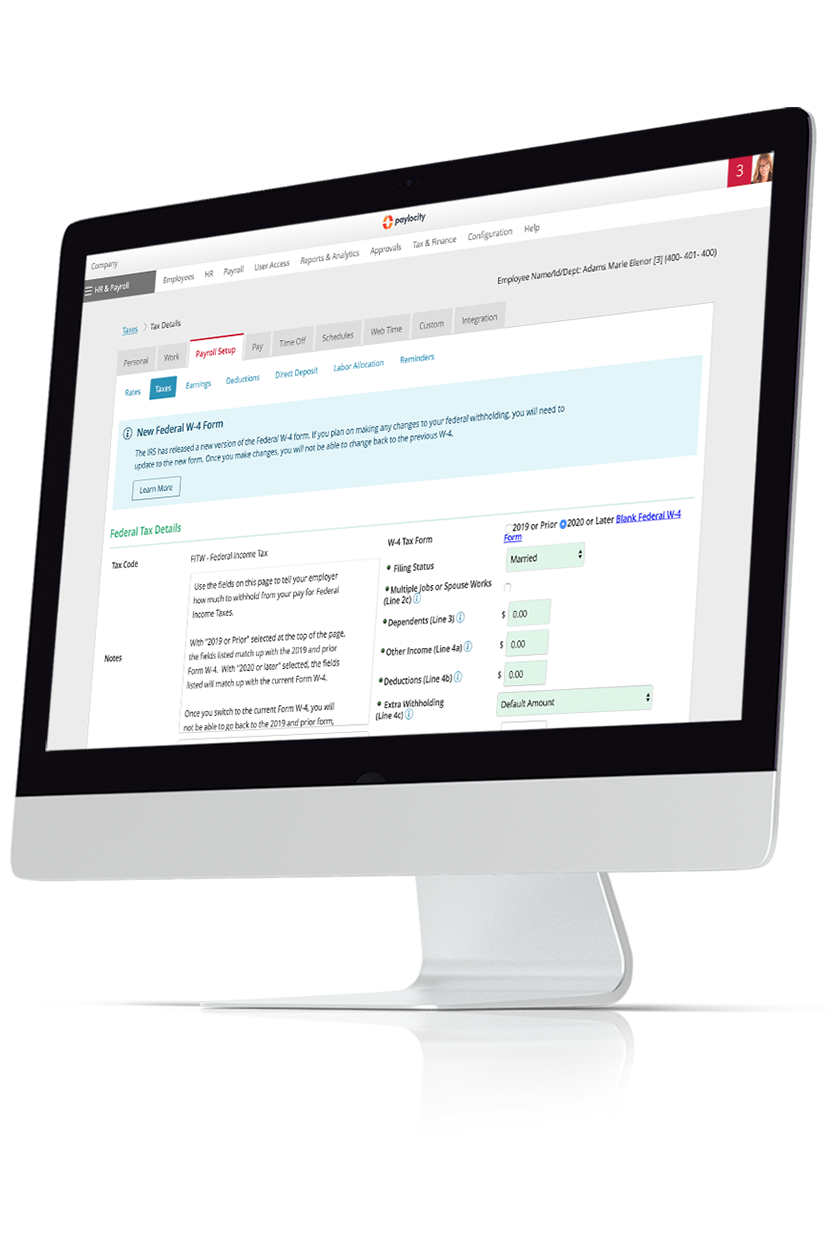Ohio Payroll Tax Facts
January 17, 2025
Having to comply with unique state taxes and wage laws can make processing payroll doubly daunting. Here’s everything you need to know about these rates and laws for the state of Ohio.

Ohio uses a slightly higher minimum wage rate for organizations that meet a certain criterion, but for those that don’t, the federally mandated wage rate is applied. It also has a few reciprocal agreements with other states to provide tax relief for citizens who work and live in different states.
When it comes to processing payroll, Ohio-based organizations must handle the following taxes in addition to those required by the federal government:
- Personal Income (a.k.a. State Income Tax)
- State Unemployment Insurance (SUI)
- Local Taxes
The below information was last updated January 17, 2025. It is not intended as legal or tax advice.
Ohio Payroll Tax Rates
Ohio State Income Tax (SIT)
Ohio’s SIT is progressive, meaning it adjusts based on the income level of the employee paying the tax:
|
Income Tax Bracket |
2025 Income Tax Rate |
|
$0 - $416.67
|
0.50% of excess over $0.00 |
|
$416.67 - $833.33 |
$2.09 + 1.001% of excess over $416.76 |
|
$833.33 - $1,250.00 |
$6.26 + 2.005% of excess over $833.33 |
|
$1,250.00 - $1,666.67 |
$14.61 + 2.505% of excess over $1,250.00 |
| $1,666.67 - $8,333.33 | $25.05 + 2.990% of excess over $1,666.67 |
| $8,333.33 or greater | $224.38 + 3.800% of excess over $8,333.33 |
*Based on a monthly payroll period. To calculate an employee’s taxable wage, subtract from their gross pay $54.17 for each claimed exemption. Refer to the state's Optional Computer Formula for calculating SIT based on annual wages.
|
Additional Ohio SIT Details |
|
|
Supplemental Withholding Computation |
3.50% |
|
Valid Filing Statuses |
|
|
Exemptions |
Number of allowances |
|
Form W-4 |
|
|
Reconciliation Frequency |
Annual |
Ohio State Unemployment Insurance (SUI)
SUI provides unemployment benefits to eligible workers who are unemployed through no fault of their own (as determined by state law) and meet the state’s eligibility requirements.
|
Ohio SUI Tax Details |
|
|
Taxable Wage Base |
$9,000 |
|
Employee Subject to Tax |
No |
|
Rates for Experienced Employers |
0.40% – 10.20% |
|
Rates for New Employers |
2.70% |
|
Effective Period |
Calendar Year |
|
Voluntary Contributions Allowed |
Yes; must be made by December 31 following the tax year computation date |
Ohio State Disability Insurance (SDI)
SDI benefits are funded by employees through mandatory payroll deductions from each paycheck. Ohio, however, doesn't require employers to collect an SDI tax.
Ohio Paid Sick Leave (PSL) Tax
The state of Ohio doesn't require employers to collect PSL taxes, nor does the state have a program providing such leave to employees.
Ohio Paid Family and Medical Leave (PFML) Tax
The state of Ohio doesn't require employers to collect PFML taxes, nor does the state have a program providing such leave to employees.
Ohio Local Taxes
In addition to the state-wide taxes mentioned above, over 500 cities and villages in Ohio have local income taxes for their residents. Rates for these taxes vary by location, but the state’s Department of Taxation oversees and collects the funds from these taxes to support various municipal services, such as fire departments and public works.
The Regional Income Tax Agency (RITA) and Central Collection Agency (CCA) are two large collectors of this tax but don't collect it for all municipalities. Refer to the state’s Municipal Income Taxes page for more specific information.
Miscellaneous Ohio Tax Information
Ohio Reciprocal Agreement(s)
Reciprocal agreements are when workers who live and work in different states are only required to pay taxes to the state where they live. Ohio currently has reciprocal agreements with the following states:
- Indiana
- Kentucky
- Michigan
- Pennsylvania
- West Virginia
Employers in Ohio and these states must withhold income tax from the state of the employee’s residency.
Nonresident employees working in Ohio must present employers with a completed Form IT-4-NR (Employee’s Statement of Residency in a Reciprocity State) to claim exemption from withholding.
Nonresidents working in Ohio under the reciprocal agreements can have withholdings for home states taken from wages, provided the agency has adopted a rule authorizing such a deduction.
Ohio Minimum Wage Rates
|
Wage Type |
Ohio Rates |
Federal Rates |
|
Minimum Wage |
$7.25 or $10.70* |
$7.25 |
|
Tipped Minimum Wage |
$2.13 or $5.35* |
$2.13 |
|
Actual Tip Credit |
$5.12 or $5.35* |
$5.12 |
*If annual gross sales exceed $385,000.
Paying Payroll Taxes in Ohio
Ohio Employer Registration
The agencies below can help with your state-based employer registration, including best practices, account numbers, and unemployment information. Contact the Department of Taxation for withholding tax topics and the Department of Job & Family Services for unemployment tax topics.
|
Registration Details |
Department of Taxation |
Department of Jobs & Family Services |
|
Phone |
(888) 405-4089 | (614) 466-2319 |
|
Online Registration |
Ohio Business Gateway | State Employer Registration Portal |
|
Registration Form |
Form IT 1 | Form JFS-20100 |
|
Registration Instructions |
Online and phone registrations are available. Account numbers will be issued during the online process. | Online and phone registrations are available. Account numbers will be issued during the online process or in 4-6 weeks via mail. |
|
Employer Self-Service Login |
Ohio Business Gateway | SOURCE Login Page |
Additional Ohio Payroll Tax Resources
- Department of Development Business Page
- Ohio Business Tools
- Department of Taxation Business Services Page
This information is provided as a courtesy and may be updated at any time. It is not intended as legal or tax guidance. If you have questions or concerns, we encourage you to seek the advice of a qualified CPA, tax attorney, or advisor.

Get Taxes Done Right, Without the Stress
We know there's a lot that goes into preparing and filing payroll tax forms. Save time and get support from our expert team. As a Registered Reporting Agent with the IRS, we can help prepare and file all the necessary forms you need to remain compliant - even in the face of changing legislation. Learn more here.